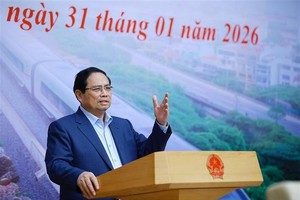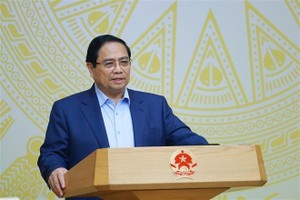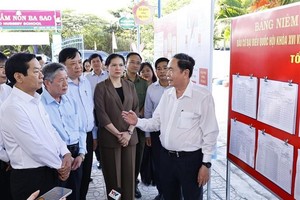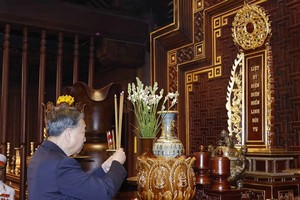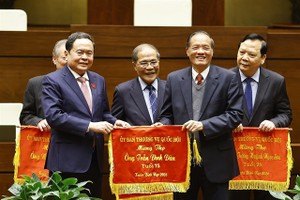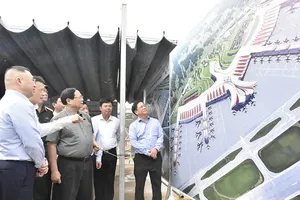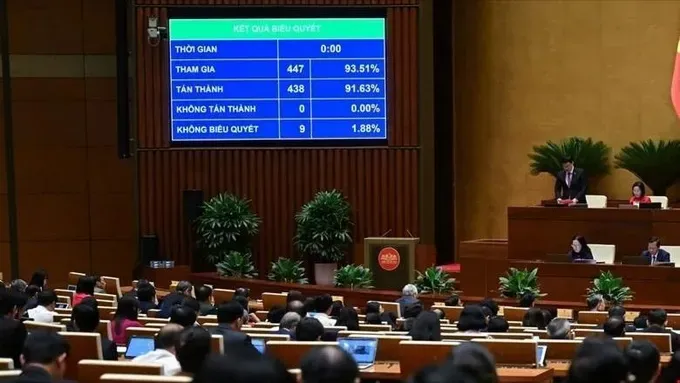
The resolution, comprising six chapters and 35 articles, will come into effect on September 1, 2025.
It outlines the framework for the establishment, operation, governance, oversight, and implementation of special mechanisms and policies applicable to Vietnam’s IFCs. It applies to all center participants, investors, relevant authorities, organizations, and individuals involved in the operation of the IFC as defined in the resolution.
According to the resolution, the IFC will be based in Ho Chi Minh City and Da Nang, developed on a unified model of operation, supervision, and governance. Each city will have tailored financial product strategies that leverage their respective strengths while maintaining fairness and mutual complementarity. The aim is to elevate Vietnam’s position in the global financial network and foster economic growth drivers.
The IFC will also serve as a platform to promote sustainable finance, encourage the development of green financial products, and mobilize resources for energy transition and green transformation projects, contributing to sustainable socio-economic development. It will operate in accordance with advanced international standards, linking with major global financial markets and facilitating integration between domestic and international exchanges. It is designed to attract capital flows and foster innovation in financial services, especially in financial technology.
The center will develop a highly skilled workforce by attracting both domestic and international financial professionals while creating a business-friendly and liveable environment for global investors and experts.
The development of the IFC must strike a balance between the interests of the State, investors, and the public, and safeguard financial security, economic stability, political order, and social safety.
Entities that meet the criteria outlined in this resolution and associated legal documents will be entitled to benefit from the special mechanisms and policies outlined.
These special policies will apply within the administrative boundaries of the IFC as specified by a Government Decree on the center's establishment, as referenced in Article 8 of the resolution.
IFC members must operate with efficiency, transparency, integrity, and professionalism, adhering to international standards in both financial and support services.
The IFC will maintain operational independence from state management functions. The State affirms its recognition and protection of the ownership of assets, investments, income, and all lawful rights and interests of IFC members.
To attract investment, technology, modern management methods, and high-quality human resources, the Government will introduce superior and tailored mechanisms and incentives. These include creating a favorable environment conducive to the free movement of international capital; promoting the development of the stock market, insurance, banking, digital assets, fintech, and e-commerce to support green, sustainable projects and innovation-driven financial services; and drawing and developing high-quality human resources in Vietnam.
Regulatory and supervisory agencies within the IFC will be streamlined, empowered, and responsive to investors and market participants. They will follow special administrative procedures aligned with both international practices and Vietnam’s legal context.
Special mechanisms and policies will cover key areas including foreign exchange and banking activities; capital markets and tax incentives; immigration, residency, and labor for experts and investors; social security and employment; land use, construction, and environment; controlled pilot frameworks for fintech and innovation; strategic investor incentives and infrastructure development; trade and service regulations, including import/export, distribution, and fees; and dispute resolution in investment and business activities.
In transactions involving at least one foreign party, the parties may agree to apply foreign law, provided it does not contravene the fundamental principles of Vietnamese law. If no governing law is agreed upon, the law of the jurisdiction most closely connected to the transaction shall apply. For property-related transactions such as ownership, leasing, or collateral involving real estate, the law of the jurisdiction where the property is located will apply.
The official working language of the IFC is English, or English accompanied by a Vietnamese translation. All regulations and internal rules will be published in both English and Vietnamese. Financial, technical, and statistical documents must be stored in English or bilingual format. Administrative procedures, transactions among IFC members and with foreign parties, and dispute resolution will all be conducted in English or English with a Vietnamese translation.



